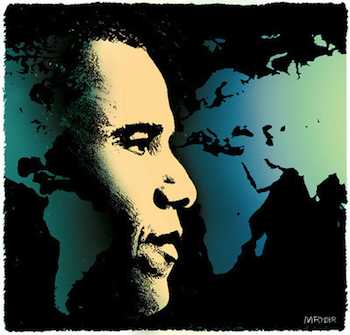- MENU
- HOME
- SEARCH
- WORLD
- MAIN
- AFRICA
- ASIA
- BALKANS
- EUROPE
- LATIN AMERICA
- MIDDLE EAST
- United Kingdom
- United States
- Argentina
- Australia
- Austria
- Benelux
- Brazil
- Canada
- China
- France
- Germany
- Greece
- Hungary
- India
- Indonesia
- Ireland
- Israel
- Italy
- Japan
- Korea
- Mexico
- New Zealand
- Pakistan
- Philippines
- Poland
- Russia
- South Africa
- Spain
- Taiwan
- Turkey
- USA
- BUSINESS
- WEALTH
- STOCKS
- TECH
- HEALTH
- LIFESTYLE
- ENTERTAINMENT
- SPORTS
- RSS
- iHaveNet.com: Politics
by Kenneth T. Walsh

Obama Presidency (© M. Ryder)
Youth has always been a double-edged sword for America's presidents.It tends to inject the
Over the years, America's youngest presidents have had mixed records.Only one -- Theodore Roosevelt, the youngest chief executive in history, who took office in 1901 at the age of 42 years and10 months -- qualifies to be in the great or near-great categories,according to historians. Roosevelt's age was a joking matter even forhis friends and advisers because he seemed so preposterously young.Secretary of War Elihu Root told him on his 46thbirthday in 1904: "You have made a very good start in life, and yourfriends have great hopes for you when you grow up." At that point, hehad been commander in chief for three years.
Rounding out theyoungest five were John F. Kennedy, who was 43 yearsand 7 months old when he was inaugurated; Bill Clintonat 46 years and 5 months; Ulysses S. Grant at 46 yearsand 10 months; and President Obama at 47 years and 5 months.
Kennedy still has a hold on the popular imagination as a young leaderwhose potential was cut short by assassination. The reputations ofClinton and Grant were marred by scandal. Obama, in office less than ayear, has yet to make a definitive mark.
"Ideally, what you getfrom a young president is seeing beyond the status quo," saysJulian Zelizer, a historian at
"On thenegative side," Zelizer says, "inexperience is a problem." A youngpresident inevitably requires on-the-job training. Although he wasreluctant to admit it publicly, President Kennedyunderstood this dynamic. "Presumably," Kennedy confided to a friend, "Iwas going to learn these lessons sometime, and maybe better sooner thanlater." Adds Zelizer: "Experience matters -- you can't get around it.People who've gone into battle before are more ready for the nextbattle."
Republican pollster Kellyanne Conway says that youthhas its advantages in the eyes of the public. "Youth connotes energy,freshness, the future," and a sense of optimism, she says. And for manyvoters, "older" suggests staleness, being out of touch, and putting political calculations above doing what's right. But if a presidentdoesn't deliver results relatively quickly, the disadvantage of inexperience could rapidly overcome the advantages of youth in thepublic's mind, Conway says. That may be where Obama is headed if he doesn't manage to win passage for healthcare legislation, start reducingthe unemployment rate, which is at 10 percent, and find honorable and practical strategies for the wars in Afghanistanand Iraq.
More broadly, the history ofAmerica's five youngest presidents offers both inspiration and cause for concern.
AMERICAN POLITICS
WORLD | AFRICA | ASIA | EUROPE | LATIN AMERICA | MIDDLE EAST | UNITED STATES | ECONOMICS | EDUCATION | ENVIRONMENT | FOREIGN POLICY | POLITICS
Receive our political analysis by email by subscribing here
© Tribune Media Services, Inc